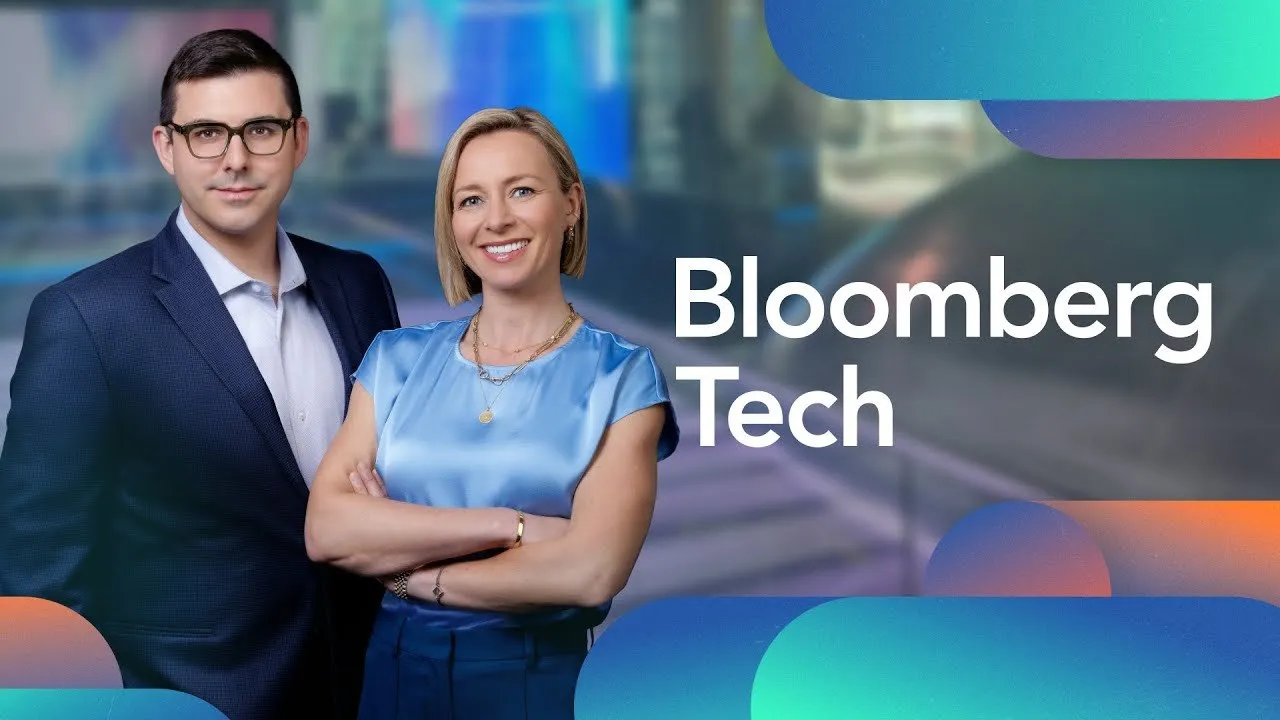Table of Contents
A divorced entrepreneur worth $133 million reveals the anxieties, strategies, and hard-learned lessons about dating with significant wealth - including how to avoid gold diggers while finding genuine connection.
Timeline Overview
- 02:02–04:15 — Meet Alex: Divorced entrepreneur worth $133M from successful company sale, now navigating dating scene after 20-year marriage
- 04:15–06:54 — Alex's Modest Lifestyle: Living in sub-1000 sq ft house, working 15 hours/week, downplaying wealth to avoid appearing flashy
- 06:54–11:06 — The Wealth Reveal Strategy: How Alex gradually shares financial status over 6 months, focusing on lifestyle flexibility rather than dollar amounts
- 11:06–18:50 — Red Flags and Gold Diggers: Identifying people who want expensive experiences without offering to pay, learning from past relationships
- 18:50–26:17 — Dating Philosophy and Approach: Meeting people in real life (chairlifts, surfing, dog parks) rather than apps, seeking lifestyle alignment over wealth matching
- 26:17–end — Power Imbalance Solutions: Creating financial equilibrium in relationships, learning from couples who gift money to balance dynamics
Key Takeaways
- Don't reveal your wealth immediately - wait 3-6 months until you understand someone's character and motivations before sharing financial details
- Avoid flashy displays early in dating that attract gold diggers - focus on experiences and personality compatibility rather than expensive venues
- Watch for red flags like someone who suggests expensive activities but never offers to pay their share or contribute financially
- Meet people through shared interests and real-life activities rather than dating apps to find genuine connections based on compatibility
- Consider the power imbalance wealth creates and actively work to minimize it through shared financial responsibilities and decision-making
- Seek partners who align with your lifestyle values rather than those impressed by or dependent on your wealth level
- Be prepared for the psychological complexity of determining whether someone likes you for you or your money - it's an ongoing challenge
- Living modestly relative to your wealth makes dating easier by reducing the financial power dynamic in relationships
- Find partners who share your values about money management, including philanthropic goals and spending philosophy
- Create systems in serious relationships that give both partners financial agency, such as shared accounts and equal input on major decisions
The Stealth Wealth Strategy: Why Less is More
When Alex re-entered the dating world after his divorce, he made a conscious decision that shapes every early interaction: he doesn't advertise his wealth. With a net worth of $133 million, mostly from a successful company exit and ongoing stock holdings, he could easily signal his financial status through expensive cars, flashy restaurants, or luxury experiences. Instead, he does the opposite.
"I definitely don't advertise that I have a lot of money," Alex explains. "I don't think that people that I mostly have gone out on casual dates with would really know. I mean I talk about how I run a small software company, so maybe there's some implicit level of income, but most of the people I've dated wouldn't know what my wealth situation is."
This approach stems from a fundamental understanding of human psychology and dating dynamics. When you lead with wealth, you attract people who are attracted to wealth. When you lead with personality, interests, and compatibility, you attract people who are attracted to you as a person. The difference becomes crucial as relationships develop and deeper trust is required.
Alex's lifestyle supports this strategy. He lives in a modest 1,000-square-foot house that he's remodeling rather than buying a mansion. He works only 15 hours per week on his cash-flowing software business, giving him tremendous schedule flexibility without obvious wealth markers. When he does "flex," it's about time freedom rather than monetary success.
"I think the flex is talking about how I only work a few hours a week, take a lot of trips, talking about things that I've done recently," he notes. This subtle approach signals financial security and lifestyle design without triggering the gold-digger dynamic that explicit wealth discussions can create.
The strategy requires discipline, especially for someone who spent years building something significant. There's natural pride in achievement and an urge to share successes, but Alex has learned that timing this revelation is crucial for building authentic relationships.
The Six-Month Rule and Gradual Revelation
Rather than having a dramatic "wealth reveal" conversation, Alex allows his financial situation to emerge gradually over months of dating. This organic approach reduces the shock factor while giving him time to evaluate his partner's character and motivations.
"Only one person has so far [found out], and that was probably six months into dating or so. It wasn't like an abrupt conversation, it wasn't like 'oh surprise, there's this big reveal,'" Alex explains. "When you're dating for a number of months, somebody starts to get to know you and they know a little bit more and a little bit more."
By six months, patterns become clear. Someone who only works 15 hours per week but takes frequent trips is obviously well-off financially. Someone whose previous company has public recognition creates inevitable speculation about wealth levels. The gradual revelation feels natural rather than deceptive because it follows the normal progression of deepening intimacy and shared information.
This timeline also provides crucial evaluation time. Alex can observe how someone handles money in general - do they offer to split bills, suggest expensive activities they can't afford, or show financial responsibility in their own life? These behaviors predict how they might react to significant wealth better than direct questions or hypothetical scenarios.
The approach requires some selective honesty early on, which Alex acknowledges: "Not dishonest but selective in what I say." When asked about his background, he starts with growing up in farm country, mentions starting several failed companies, then describes being "lucky to step away" from a successful company and now running a small software business with his partner where they're "fortunate to not have to work full-time."
This framing is technically accurate while avoiding the wealth focus that could distort early relationship dynamics. It also allows Alex to redirect conversations toward his actual interests - surfing, mountains, time with his dog - rather than business achievements or financial outcomes.
Red Flags and Gold Digger Detection
Alex's wealth screening isn't just about when to reveal information - it's about actively watching for concerning behaviors that suggest someone is attracted to his money rather than him as a person. His experience provides a valuable framework for identifying these red flags early.
The most obvious warning sign is someone who consistently suggests expensive activities without offering to contribute financially. Alex recalls dating someone who had grown up wealthy but lost access to family money after her father's death. "All of her suggestions for where to stay, what to do, cost a lot of money. Did she offer to pay? No."
This pattern extended to a 14-day trip where every hotel was $500+ per night at her suggestion, while she never offered to contribute. For someone accustomed to that lifestyle who could no longer afford it herself, Alex became a convenient funding source rather than a romantic partner.
The "offer" becomes crucial in Alex's evaluation. Even if someone can't meaningfully contribute to expensive activities, the gesture of offering to pay or suggesting cost-conscious alternatives demonstrates awareness and consideration. Someone who assumes you'll pay for everything because you can afford it reveals their transactional approach to the relationship.
Another red flag is immediate comfort with expensive experiences that would be unusual for most people. Alex notes that for someone like his ex-girlfriend, staying in luxury hotels was normal from childhood, but for him it was still new and exciting. Someone who shows no appreciation for extraordinary experiences might be taking your generosity for granted.
The challenge is distinguishing between someone who wants to enjoy your money versus someone who wants to enjoy your money with you. The former sees you as a financing mechanism; the latter sees shared experiences as relationship bonding that happens to be enabled by your resources.
Meeting People in the Real World
Alex has largely avoided dating apps in favor of meeting people through shared activities and interests. This strategy serves multiple purposes: it provides natural compatibility screening, creates organic conversation topics, and avoids the wealth-signaling that can happen through curated online profiles.
"I want to be asking people out in person," Alex explains. "My rule is meet them in real life and ask them on the date." His success stories bear this out: he met one person on a chairlift while skiing, another while surfing, and his current partner at a dog park. Each meeting happened through genuine shared interests rather than manufactured dating scenarios.
This approach creates several advantages for wealthy daters. First, it screens for lifestyle compatibility naturally. Someone you meet skiing probably enjoys outdoor activities; someone at the dog park likely values pets and outdoor time. These shared interests provide relationship foundation beyond financial considerations.
Second, real-world meetings create more natural conversation flows. Instead of "What do you do?" as an opening question, you can start with immediate shared experiences - the ski conditions, the surf quality, or your dogs' interactions. This delays professional and financial discussions until after personal chemistry is established.
Third, it makes wealth evaluation more difficult for potential gold diggers. Dating apps often allow profile research and financial speculation before meeting. Real-world encounters provide fewer clues about someone's wealth level, forcing people to evaluate you based on immediate personal interactions.
The strategy requires putting yourself in situations where meeting people naturally occurs. For Alex, this means maintaining active hobbies and being open to spontaneous social interactions. It also requires confidence to approach strangers in casual settings rather than relying on algorithmic matching.
The Power Imbalance Challenge
Even in healthy relationships with genuine people, significant wealth creates power imbalances that must be actively managed. Alex recognizes this as an ongoing challenge rather than a problem with a simple solution.
"There will always probably be that imbalance," Alex acknowledges. "I think the way it would show up the worst is if there's a real mismatch in how you want to live your lifestyle. If I was wanting to spend a lot of money and bringing this person along and they were attracted to that lifestyle, there would just be this imbalance where I'm paying for everything, it's totally dependent on what I say we do."
Alex's primary strategy for minimizing this imbalance is lifestyle design. By maintaining a relatively modest lifestyle focused on experiences like camping and road trips rather than luxury consumption, he reduces situations where financial disparities create relationship tension.
"My hope is that I'll meet somebody who is into the same lifestyle that I'm into, which is to do a lot of traveling but not to be spending a lot of money on it. I'm happy driving up and down the coast camping in a van for weeks on end," he explains.
This approach is psychologically smart because it makes his wealth relatively invisible in daily relationship dynamics. When most shared activities are accessible to people with normal incomes, the financial power dynamic becomes less prominent.
However, for relationships with more expensive lifestyle preferences, the imbalance becomes more challenging. Some couples address this through creative financial arrangements, like Ann Malum's approach of gifting money to her husband to create more equal financial footing in their marriage.
Long-term Compatibility and Values Alignment
As Alex thinks about serious long-term relationships, he's focused less on a partner's current wealth and more on alignment around future financial decisions, particularly philanthropy. This perspective shift from income matching to values matching reflects the deeper compatibility needed for lasting partnerships.
"I think a big thing that I'm going to need to figure out over the next few decades is how to give away a lot of money. I don't want it going to my kids, or I want very little of it going to my kids," Alex explains. "If I'm trying to figure out how to give away tens of millions of dollars, somebody who could be a partner in that is important to me."
This requires evaluating not just someone's current relationship with money, but their fundamental values about wealth, social responsibility, and resource allocation. Someone who exhibits charitable thinking and awareness of social issues, even without significant personal wealth, might be a better long-term partner than someone wealthy but focused only on personal consumption.
The vetting process for this compatibility happens gradually through conversations about current events, social issues, and personal values rather than direct financial discussions. Alex looks for people who are "knowledgeable about challenges in the world and some aspect whether that's poverty or climate or whatever, and is thinking about it and actively trying to come up with ways to participate."
This approach recognizes that managing significant wealth is a full-person project requiring wisdom, empathy, and long-term thinking. A partner who can contribute to these decisions becomes valuable regardless of their personal financial contribution to the relationship.
The values alignment also extends to lifestyle decisions, child-rearing philosophy, and life priorities. Someone who shares Alex's preference for experiences over luxury goods, outdoor activities over expensive entertainment, and meaningful work over status signaling creates natural compatibility that transcends financial considerations.
Practical Strategies for Wealthy Daters
Alex's experience suggests several practical approaches for people dating with significant wealth who want to find genuine connections while protecting themselves from exploitation.
Start with lifestyle signaling rather than wealth signaling. Talk about schedule flexibility, interesting experiences, and passion projects rather than business exits or investment returns. This attracts people interested in the life you can create together rather than the bank account you've accumulated.
Observe financial behavior patterns early. Watch how dates handle bill-paying, suggest activities, and manage their own resources. Someone who consistently expects you to pay without offering, suggests expensive activities they can't afford, or shows poor financial judgment in their own life likely won't handle your wealth appropriately.
Use gradual revelation over months rather than dramatic disclosure conversations. Allow your financial situation to emerge naturally as relationships deepen, giving you time to evaluate character while reducing the shock factor that can distort relationship dynamics.
Focus on shared values about money rather than similar wealth levels. Someone who thinks thoughtfully about charitable giving, social responsibility, and lifestyle priorities might be more compatible than someone wealthy but focused only on personal consumption.
Create systems that minimize power imbalances where possible. This might mean choosing activities accessible to normal incomes, finding partners with their own sources of purpose and achievement, or even financial arrangements that create more equal footing in serious relationships.
Meet people through genuine shared interests rather than wealth-focused social circles. Real-world connections based on activities you enjoy provide better compatibility screening than introductions through business networks or high-end social events.
"I definitely don't advertise that I have a lot of money. Most of the people I've dated wouldn't know what my wealth situation is... The flex is talking about how I only work a few hours a week, take a lot of trips."
"All of her suggestions for where to stay, what to do, cost a lot of money. Did she offer to pay? No. The offer is important. The offer is absolutely important."
"If I'm trying to figure out how to give away tens of millions of dollars, somebody who could be a partner in that is important to me... somebody who exhibits those characteristics already in their life."
Conclusion
Dating with significant wealth creates unique challenges that require intentional strategies and ongoing vigilance. Alex's approach of stealth wealth, gradual revelation, and values-based screening provides a framework for finding genuine connections while protecting against exploitation. The key insight is that leading with wealth attracts people attracted to wealth, while leading with personality and shared interests attracts people attracted to you as a person. This fundamental difference determines whether relationships develop on authentic or transactional foundations. While power imbalances and gold-digger concerns are real, they can be managed through thoughtful lifestyle choices, careful observation of partner behavior, and focus on long-term values alignment rather than current wealth matching. The goal isn't to hide your success forever, but to ensure that when you do share it, you're sharing with someone who would value you regardless of your bank account. This approach requires patience and discipline, but ultimately creates the foundation for relationships built on genuine compatibility rather than financial convenience.
Practical Implications
- Delay wealth disclosure for 3-6 months - Allow financial status to emerge gradually while you evaluate someone's character and motivations
- Signal lifestyle benefits rather than dollar amounts - Talk about schedule flexibility and experiences rather than business exits or investment returns
- Watch for consistent financial red flags - Note who suggests expensive activities without offering to pay or shows poor money judgment in their own life
- Meet people through shared interests - Real-world connections through hobbies provide better compatibility screening than dating apps or wealth-focused social events
- Maintain modest lifestyle relative to wealth - Camping trips and road trips create fewer power imbalance situations than luxury experiences
- Evaluate values alignment over wealth matching - Look for charitable thinking and social awareness rather than similar income levels
- Create systems that minimize power imbalances - Choose activities accessible to normal incomes and find partners with independent sources of purpose
- Focus on long-term financial compatibility - Seek partners who could contribute to philanthropic and lifestyle decisions rather than just current earning capacity





